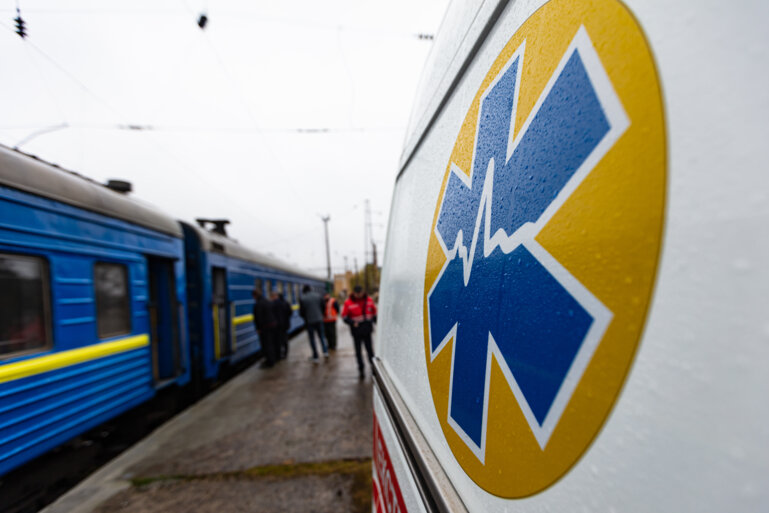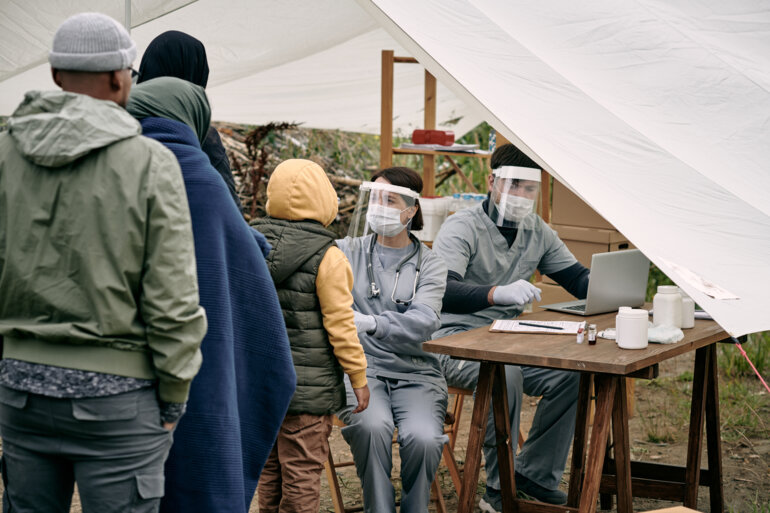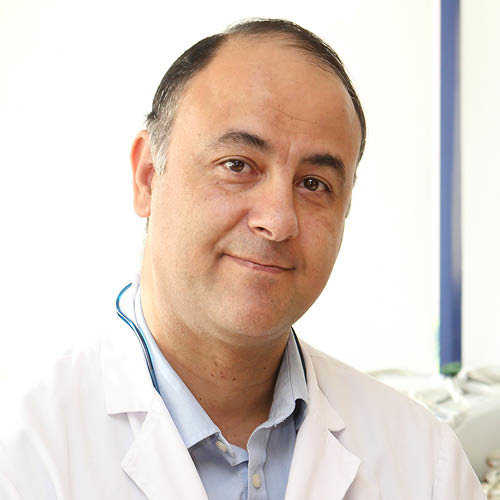In neighbouring countries, oncologists are seeing a growing number of female refugees with breast cancer whose treatment may have started before they left Ukraine and urgently needs to be continued for good outcomes to be achieved.
By June 2022, a predicted 7-8 million refugees will have fled Ukraine due to the Russian invasion, with numbers rising at unprecedented speed and putting exceptional pressure on healthcare services in host countries – notably Poland, Moldova, Romania and Slovakia. In Poland, Dr Maryna Rubach, who runs the daycare chemotherapy ward at the Maria Sklodowska-Curie National Research Institute of Oncology, Warsaw, is seeing an influx of Ukrainian patients – mainly women with breast cancer arriving to continue adjuvant chemotherapy that was started before they fled their homes.
“About 20-30 Ukrainian patients per day are being seen at the Institute which is the largest oncology centre in the country. In the chemotherapy day unit, we are seeing three or four a day, many of them with no information about the medicines they were taking,” says Rubach. “Fortunately, adjuvant treatment for breast cancer is fairly standard and patients are likely to receive the same therapy as in Ukraine.”
Cancer in Ukraine
Before the war, cancer cases were rising in Ukraine, with 179,493 cases predicted for 2022, an 18% increase during the last decade. Breast cancer is the most common cancer in women. Cancer care and registration programmes have been in place since the Soviet era but there are no coordinated screening programmes, and a National Cancer Control Plan (NCCP) was awaiting approval in 2019 (Cancer Epidemiology 2020;65:1016630).
Breast cancer is a potentially curable disease if diagnosed and treated at an early stage. However, major delays in the curative setting are expected for refugees in the short- and mid-term. For patients with cancer who are still in Ukraine, healthcare services are greatly disrupted. Medical supplies, including cancer drugs, surgical equipment, and diagnostic reagents are usually transported within Ukraine by air and road, but there are now no flights and road transport is hazardous (Lancet Oncology 2022 Mar 3; S1470-2045(22)00130-9). The World Health Organization (WHO) has established supply lines to many major cities in Ukraine, including those being shelled, but deliveries are mainly for trauma patients (WHO, 14 March 2022).
We are very glad to treat Ukraine refugees with cancer and they are very grateful, but they really need psychological help, not just cancer treatment.
War takes a toll on cancer care
“Wherever it rages, war is always a humanitarian catastrophe that hits the weakest in the society, including cancer patients,” says ESMO President Prof. Solange Peters, CHUV, Lausanne, Switzerland, who is chairing the Special session on the Ukraine: How many wars to fight? at ESMO Breast Cancer 2022 (3-5 May 2022). “At ESMO we have been supporting actions in this evolving scenario, first of all reaching all National Societies and patients advocates which are part of our large network, enquiring for their needs. We also worked with the World Health Organisation (WHO) to collect data to assess the capacity of single nations to accept refugees with cancer in terms of number of seats, beds and physicians.”
Capacity is a major issue. In Poland, for instance, there is an ongoing shortage of doctors and nurses with many, like Rubach, working beyond usual retirement age. Low salaries in State hospitals mean that many young doctors choose to work in the private sector.
“We recently lost three of the six doctors who are needed to run the daycare chemotherapy unit, and we probably have about 16 of the 20 nurses we need. We have heard that about 100 doctors and 50 nurses have come to Poland from Ukraine but, of course, we do not know if they are oncologists or if they will stay in Poland,” says Rubach.
In the longer term, additional patients may prolong queues at all stages of cancer care – for residents in receiving countries as well as Ukrainian refugees. Before the war, the wait for cancer diagnosis and treatment in some European countries was already longer than usual due to the pandemic and, as in many countries, oncologists are seeing patients with more advanced cancers because of diagnostic delays.
Ukrainian refugees arriving at the United Nations High Commissioner for Refugees (UNHCR) reception centres at the borders with Poland, Moldova and other neighbouring countries are advised how to get medical help, including cancer treatment, and hospitals are expected to treat Ukrainian patients the same as local patients, free of charge. While Poland has well established cancer services, other receiving countries are not so fortunate. In Moldova, for example, which struggles to meet the needs for cancer care of its own population, Ukrainian patients are being flown to Austria for treatment (UNHCR, March 2022).
However, there are concerns about the cost of such generosity even in wealthier countries such as Poland. “Our budgets are already overspent because of the extra money that was needed for drugs and protective equipment during the COVID-19 pandemic, so we are facing reimbursement problems. Standard chemotherapy drugs for breast cancer are not expensive but of course we had not planned for these extra patients, and if some need biological therapies they will cost a lot more,” explains Rubach.
“Unfortunately, many organisations cannot act on the ground immediately because they have not a practical way to get there, so we need to reinforce connections with all European countries to collect relevant data.
International collaborations
Despite remaining within the Ukrainian borders, the current war is mobilising the whole oncology community. ESMO is currently partnering with the WHO, the European Committee and Parliament, and the European Cancer Organisation-American Society of Clinical Oncology (ECO-ASCO) Special Network on the Impact of the War in Ukraine on Cancer to gather updated information on the cancer services in Ukraine and from cancer centres in receiving countries about refugees presenting and being treated locally.
“Unfortunately, many organisations like ESMO cannot act on the ground immediately because we have not a practical way to get there, so we need to reinforce connections with all European countries to collect relevant data,” says Peters. “It is a huge effort, not without obstacles. We are facing some issues in accessing medical data and records due to a lack of or restrictions in data exchange by the General Data Protection Regulation (GDPR). Also, language is a barrier.” For instance, ESMO has a well-established Patient Guides series which can assist oncologists in communicating with patients and their families for a better understanding of the cancer journey. To date, 27 titles on various tumours have been translated in 28 languages, and three additional titles on breast, cervical and ovarian cancer will be available soon in Ukrainian language. “Today, being united under one oncology community is more important than ever to ensure the field of cancer care delivers the results that patients are waiting for, wherever they are located.”







